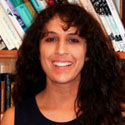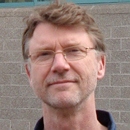Academic Editors
The following people constitute the Editorial Board of Academic Editors for PeerJ. These active academics are the Editors who seek peer reviewers, evaluate their responses, and make editorial decisions on each submission to the journal. Learn more about becoming an Editor.

Pragyan Acharya
Dr. Pragyan Acharya is an Associate Professor in the Department of Biochemistry, All India Institute of Medical Sciences, New Delhi, India. The major interests of her laboratory is in understand immune dysregulation in liver diseases and understanding the interaction of the immune system in tissue injury and infection. Towards this, she combines studies on clinical samples, in vitro cultures and animal models of liver disease. She is specifically studying non-alcoholic fatty liver disease (NAFLD) and acute-on-chronic liver failure (ACLF) using proteomics and cell biological approaches. Work carried out in her laboratory has led to the identification of the importance of the CD177+ neutrophil sub-population in ACLF and its association with patient outcomes.

Maria R. Servedio
Associate Professor of Biology at the University of North Carolina, Chapel Hill. Council member for the Society for the Study of Evolution. Member of the Operations Committee for the National Evolutionary Synthesis Center (NESCent). Recipient of the Young Investigators Award from the American Society of Naturalists.

Jay D Evans
Lead Scientist for the US Dept. Agriculture Bee Research Laboratory. Recipient of 2011 Hambleton Award for Bee Research and 2002 ARS Early Career Scientist-BA Award, member i5k Insect Genome Planning Committee.

Arnold R. Salvacion
Arnold is a Research Fellow at Centre for Crop and Disease Management, Curtin University. He is an environmental scientist with more than 15 years of research experience in agriculture, natural resource, applied climate science, human ecology, quantitative geography, and geographic information system. In 2021, he was awarded as one of the Outstanding Young Scientists by the National Academy of Science and Technology (Philippines) for his contribution to the advancement of human ecological research in the country. He is the founding Editor-in-Chief of the Journal of Human Ecology and Sustainability and also serves on the Editorial Board of Spatial Information Research, and SN Social Sciences.

Lei Huang
Dr. Lei Huang is a cancer epidemiologist, translational oncologist, digestive surgeon, surgical oncologist, and gastroenterologist. He has published about 50 papers in SCI(E)-indexed journals including Gut, Annals of Surgery, BMC Medicine, JAMA Surgery, Clinical Cancer Research, Cancer Immunology Research, International Journal of Cancer, EBioMedicine, and Gastric Cancer. His works have been cited for about 1000 times.
Dr. Huang has served on the editorial board of Frontiers in Oncology, World Journal of Gastrointestinal Oncology, PeerJ, Medicine, and Translational Cancer Research, and Frontiers in Surgery. He has been peer reviewer for about 50 SCI(E)-indexed journals including Annals of Internal Medicine, Annals of Surgery, Clinical Cancer Research, Journal of the National Comprehensive Cancer Network-JNCCN, Cancer Letters, Oncoimmunology, and Oncologist. He was selected as Best Reviewer for Annals of Internal Medicine twice in 2017 and 2019.
Dr. Huang has been invited to give oral presentations in the ASCO Annual Meeting and International Gastric Cancer Congress (IGCC), and has received Merit Awards in the ESMO Annual Meeting and Awards for Young Investigators in the IGCC.
His research interests majorly cover the epidemiological, clinical, and translational aspects of digestive cancers. He has successfully coordinated several large international investigations with participants from the US and about 20 European countries.

Simon J Hubbard
I am a Professor in the Faculty of Biology, Medicine and Health at the University of Manchester. My scientific career has taken me from a PhD in Biochemistry at UCL, London, via the European Molecular Biology Laboratory, back to Manchester in the UK where I undertook a Wellcome Trust fellowship, before gaining a Lectureship in 1998. My research covers themes in computational and systems biology and bioinformatics. We apply computational approaches to the study of biological systems and molecules, and my particular areas of interests are broadly in the areas of protein and genome bioinformatics including quantitative proteomics, regulation of gene expression (and particularly translation from mRNA to protein), and general bioinformatics.

Beth Jefferies
Beth is a Professor of Psychology at the University of York, UK. Her research seeks to understand the neural basis of semantic cognition and language, and disorders affecting these aspects of cognition. She uses multiple neuroscientific methods, including neuropsychology, neuroimaging (MEG, fMRI) and brain stimulation to investigate how concepts are represented and flexibly retrieved.
Outstanding Doctoral Research Contributions to Psychology (2004)
Elizabeth Warrington Prize - British Neuropsychological Society (2008)
Cortex Prize - Federation of European Societies of Neuropsychology (2010)

Li Li
Dr. Li Li is Professor of Kinesiology within the Department of Health Sciences and Kinesiology at Georgia Southern University. His research is focused on the neuromuscular coordination of human postural control, especially postural stability during standing and walking.
Dr. Li's research interests include:
- Biomechanics of human movement
- Aging
- Running injuries
- The effects of certain pathologies on human movement (especially - peripheral neuropathy, diabetes, and cerebral palsy)
- Gait analysis

Krystyna Dąbrowska
Affiliation: Institute of Immunology and Experimental Therapy, Polish Academy of Sciences, Wrocław, Poland (Bacteriophage Laboratory).Position: professor.
Current field of interest: non-bactericidal effects of phages in mammals; i.e. phage molecular biology tools for studies of phage impact on immunological system and other physiological aspects in mammals.

Robert Fruscio
Associate Professor of Obstetrics and Gynecology of the University of Milan-Bicocca, in Monza, Italy and staff physician in the general Gynecological Unit of San Gerardo Hospital. Before MD graduation and during the residency in Obstetrics and Gynecology he conducted an intense preclinical research activity at Mario Negri Institute (Milan) and at Massachusetts General Hospital (Boston). In 2010 he acquired a PhD in Gynecologic Oncology. His research interests are focused on molecular biology of ovarian cancer, and on prevention and treatment of gynecological malignancies.
2001: Degree in Medicine and Surgery
2006: Specialization in Obstetrics and Gynecology
2010: PhD in Gynecologic Oncology
2014: Associate Professor in Obstetrics and Gynecology

David Tollervey
Director of the Wellcome Trust Centre for Cell Biology, Professor of RNA Biology and Wellcome Trust Principal Research Fellow. Fellow of the Royal Society, Member of EMBO and Fellow of the Royal Society of Edinburgh. Former President of the RNA Society.

Carlos Gutiérrez
Carlos Gutiérrez, DVM (Córdoba, 1986), diplomate in Public Health (Madrid, 1988), PhD (Las Palmas, 1995), Master in Public Health (Las Palmas, 2003), University Expert in Biostatistics (Madrid, 2006), diplomate European College Small Ruminant Health Management (-ECSRHM-Brussels, 2013), is currently Full Professor at Research Institute of Biomedical and Health Sciencies/School of Veterinary Science, University of Las Palmas de Gran Canaria.
He has developed several projects, collaborations and training periods in the Institute of Tropical Medicine (Antwerp, Belgium), Swiss Tropical and Public Health (Basel, Switzerlandor) or Vlaam Biotchnology Institute (Brussels, Belgium).
He has particular interest on animal tropical diseases (trypanosomosis in special) as well as biomedical applications of nanobodies (VHH). Currently he is an active member of different international committees like ad-hoc OIE group on non tse-tse transmitted animal trypanosomes (OIE, Paris), Camel Section of the European Federation of Animal Science (EAAP, Roma) or Teaching committee of the ECSRHM (Brussels) and belongs to several Societies like New York Academy of Sciences or National Geographic Society.

